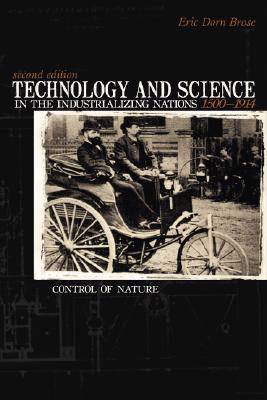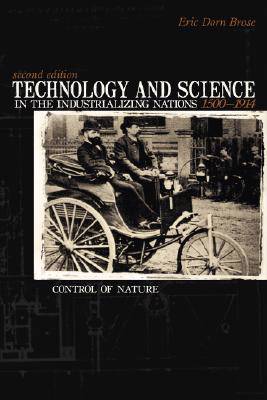
- Retrait gratuit dans votre magasin Club
- 7.000.000 titres dans notre catalogue
- Payer en toute sécurité
- Toujours un magasin près de chez vous
- Retrait gratuit dans votre magasin Club
- 7.000.0000 titres dans notre catalogue
- Payer en toute sécurité
- Toujours un magasin près de chez vous
34,95 €
+ 69 points
Description
In this revised, expanded edition of his critically acclaimed book, Eric Dorn Brose weaves a fabric from three histories that, until now, have been thought of as mutually exclusive. The history of technology, the history of science, and the history of economic development leading to the Industrial Revolution have been written to a very great degree as three histories. For decades historians of science and technology agreed with one another that until the 1900s there was little causative interaction between the subjects they studied. Moreover, economists treated science and technology as "residual" factors that were important only to the extent that they could be measured. Few historians have attempted, as Brose does here, to demonstrate the relationships among science, technology, the economy, and general political developments. Incorporating much new research, Professor Brose continues his work of synthesizing economic and scientific factors along with the role of social and political institutions. The result is an up-to-date, tightly written, and concise survey of the history of technology and science over four centuries. The narrative starts with the opening of the modern historical epoch around 1500 and ends with the outbreak of World War I in 1914, and covers events in both Europe and the United States. Brose constructs his account from the standpoint of technological systems -- the idea that each epoch evolves a system to meet the material demands of society -- and the rise and fall of each such system within the period. This is a fine introductory overview of the interrelationships among science, technology, and society in the early modern and modern periods, and the impact of each upon the other.
Spécifications
Parties prenantes
- Auteur(s) :
- Editeur:
Contenu
- Nombre de pages :
- 133
- Langue:
- Anglais
- Collection :
Caractéristiques
- EAN:
- 9781591023678
- Date de parution :
- 01-01-06
- Format:
- Livre broché
- Format numérique:
- Trade paperback (VS)
- Dimensions :
- 170 mm x 225 mm
- Poids :
- 204 g

Les avis
Nous publions uniquement les avis qui respectent les conditions requises. Consultez nos conditions pour les avis.






